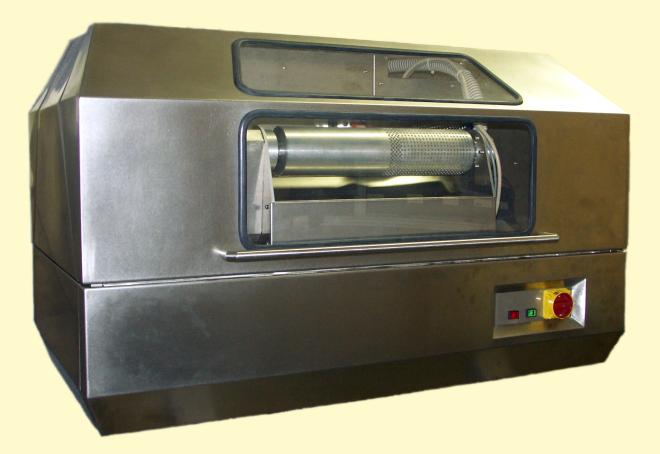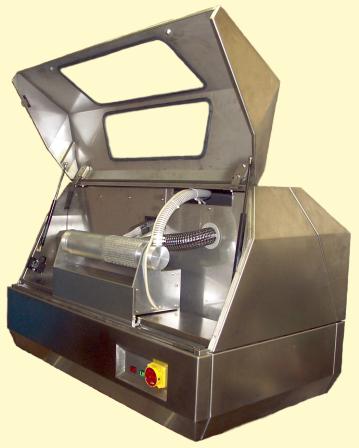
The CYgraph III D system is tailored for stamp and flexo applications. Our experience with flatbed systems for stamp engraving has convinced us, that in this domain rotating systems facilitate better results with less effort. We always recommend a drum type engraver if a 100 % utilisation for rubber engraving is possible. For sign marking it could be expedient to purchase an additional flatbed machine with less laser power.
The special capability of the CYgraph III D system to effectively produce stamps is demonstrated by its high engraving speed, its ability to cut optimised stamp contours and by its endowment with a powerful software package for artwork design.

Software packages for different tasks:

The points mentioned above lead to a very stable operation at reduced production costs.
By appropriate construction our machine is capable of moving its drum forward and backward and thus make contour cutting of the engraved stamps possible. The drum type machines deliverd by our competitors earlier were not able to cut.
The disadvantages of drum type machines are not relevant for stamp production:
The following example shows the speed advantage of drum type engravers:
| Machine type | Flatbed | Drum | |
|---|---|---|---|
| Sheet size | A4 portrait | A4 landscape | A4 |
| Laser power (W) | 120 | 120 | 120 |
| Engraving depth (mm) | 1,0 | 1,0 | 1,0 |
| Width of sheet (mm) | 200 | 287 | 287 |
| Hight of sheet (mm) | 287 | 200 | 200 |
| Resolution (dpi) | 800 | 800 | 800 |
| Acceleration (mm/s²) | 20 000 | 20 000 | – |
| Velocity (mm/s) | 763 | 763 | 763 |
| Lines to engrave | 6 780 | 4 724 | 4 724 |
| Total time (min) | 49.2 | 46.3 | 40.9 |
| Time related to flatbed LS | 106 % | 100 % | 88 % |
It is evident, that with given laser power the engraving time is less for the rotating machine. Thereby engraving quality tends to be better for the drum type machine.
The situation would be better for the Flatbeds, if the acceleration could be made higher. This, however would have a negative influence on engraving quality and the life time of the machine, especially as the moving optics of some machines intended for rubber engraving have to carry heavy exhaust tubing. (The CYgraph III flatbed system however is equipped with a special patented axis of which the moving parts are very lightweight and effectively protected against dust.)
The situation for flatbed systems becomes worse if higher laser power or microporous rubber is used (which means engraving with higher speed). Higher resolution leads to a bigger advantage of the rotational machine as well.
| Laser Class | I |
|---|---|
| Resolution | adjustable, for stamps usually 600 to 1200 dpi |
| Laser | 50 W, 100 W or more; sealed RF driven CO2 laser |
| Mains | 3 phases, 400 V, other configurations possible |
| Compressed air | 2 bar, 50 l/min |
| Size | W 120 cm × H 75 cm × D 71 cm (desktop), additional space for exhaust and cooling systems must be provided |
| Weight | about 120 kg (without cooler and exhaust system) |
| Exhaust system | MKF 103D, 105 or similar, depending on Laser power and application |
| Max. speed of X-axis | > 2 000 mm/s |
| Max. speed of Y-axis | ca. 100 mm/s |
| Model | Nominal power | time needed for one A4 sheet | |
|---|---|---|---|
| Rubber | NCR | ||
| CYgraph III DW50 | 50 Watt, CO2 | ca. 90 min | ca. 60 min |
| CYgraph III DW100 | 100 Watt, CO2 | ca. 45 min | ca. 25 min |
(Data for 1.1 mm engraving depth, depending on rubber type and actual Laser power)